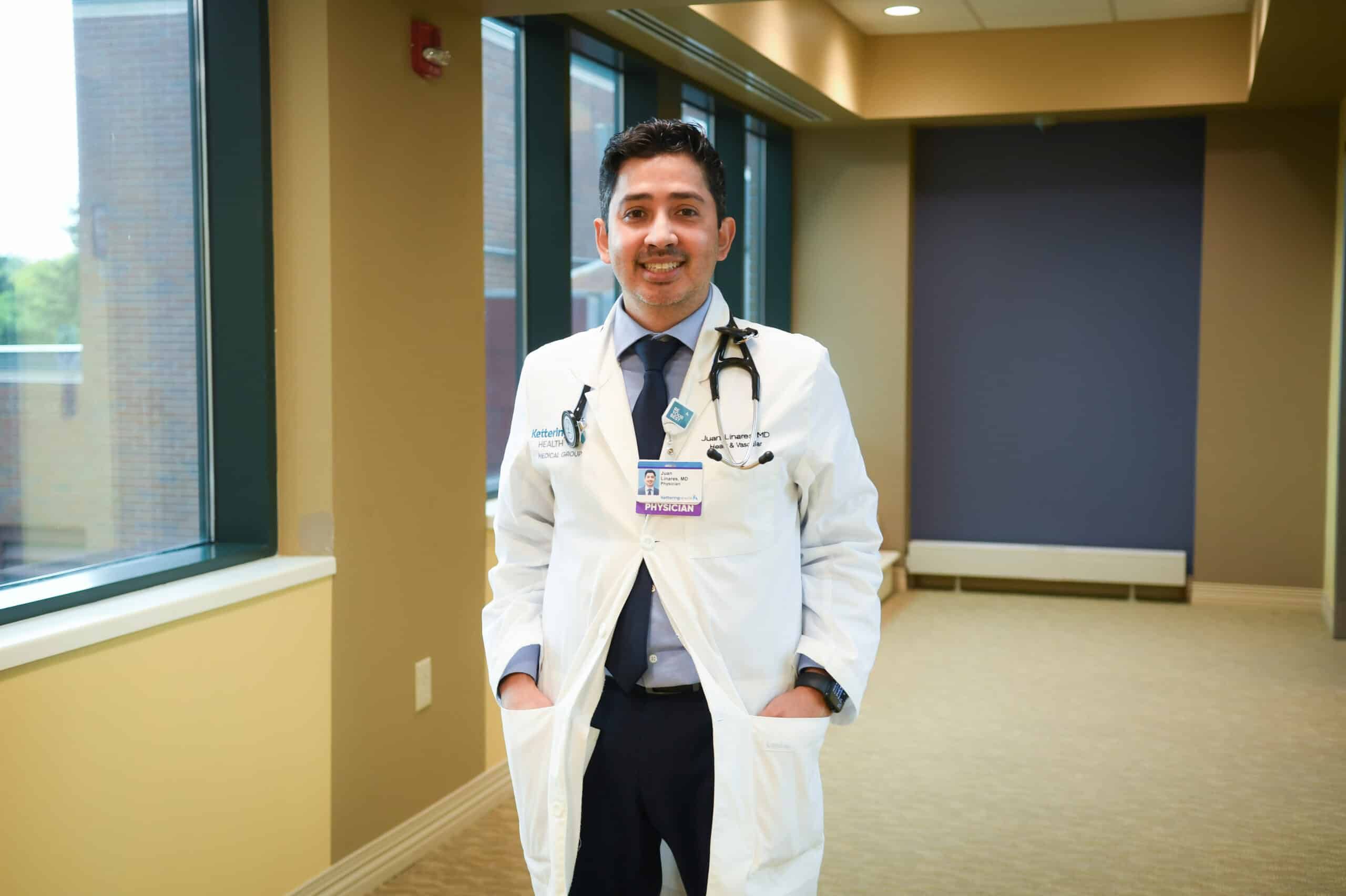Heart and Vascular Care
Want to learn more about this at Kettering Health?
At a Glance
Q: What are the risks of eating only meat?
A: The carnivore diet lacks essential nutrients and can lead to high cholesterol, increasing heart disease and stroke risk.
- Red and processed meats are high in saturated fat.
- Carbs and fats are vital for energy and health.
- Learn healthy swaps for balanced nutrition.
There’s always a new diet trend floating around online. In 2012, juice cleanses were praised for their (now mostly debunked) health benefits. In 2018, everyone knew someone on the keto diet.
Now, people are adopting the carnivore diet. The idea is that to lose weight or build muscle—or even just live a healthy lifestyle—you should prioritize protein and eliminate carbs and fats completely.
We need protein to survive, but Dr. Juan Linares, a cardiologist, explains that eating only meat may do more harm than you’d think.
The hidden costs
Red meat—pork and beef—and processed meats are high in saturated fat, known as “unhealthy” fat. Saturated fats prevent the body from properly breaking down cholesterol, causing it to build up and increase your risk of heart disease and stroke.
If meat is your main source of protein, opting for chicken, turkey, or fish can drastically lower your saturated fat intake.
But you shouldn’t eat only meat. While our bodies need protein, they also need carbohydrates and fats.
A balanced diet
Carbs and fat often get a bad rap. But they serve important roles in our health.
Carbohydrates are broken down by our digestive system into glucose, which is absorbed into our bloodstream to give us energy. Without carbohydrates, our organs wouldn’t function.
“Most organs in our body prefer using carbohydrates as a fuel source,” Dr. Linares explains.
Although it’s true you should try to avoid saturated fat, unsaturated fat is actually good for you. It lowers cholesterol levels, fights inflammation, and helps regulate our nervous system.
But it’s important to note that not all carbohydrates and fats are created equal. Dr. Linares says you should focus on whole, unprocessed foods.
Good sources of carbohydrates (often called complex carbs) include
- Oats
- Beans
- Quinoa
Healthy fats include
- Avocado
- Olive oil
- Nuts
The bottom line
When it comes to nutrition, remember that balance is key.
Instead of eliminating food groups, focus on easy swaps you can make to ensure you get the protein, complex carbs, and healthy fats you need to feel your best.









